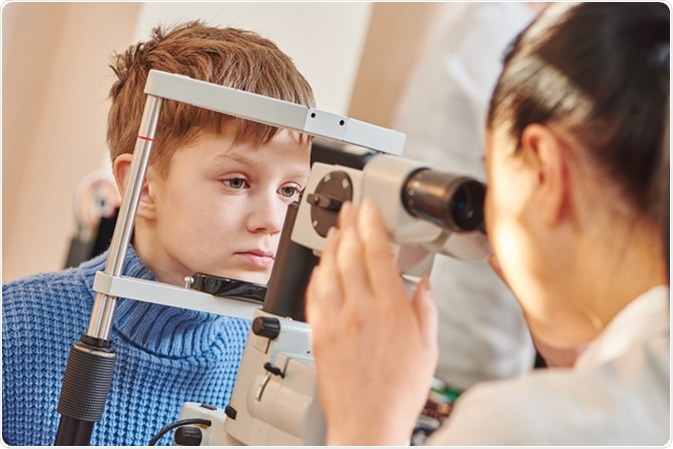Pediatrics in Andalusia: Compassionate Take Care Of Growing Households
Pediatrics in Andalusia: Compassionate Take Care Of Growing Households
Blog Article
Investigating the Most Current Advancements in Retina Treatments for Numerous Eye Conditions

Improvements in Macular Degeneration Therapies
Macular deterioration, a leading reason of vision loss in older adults, has actually seen substantial progression in therapy choices. One groundbreaking innovation is the growth of anti-VEGF (vascular endothelial growth factor) shots, which have actually changed the management of wet age-related macular degeneration.
Additionally, the introduction of implantable mini telescopes for end-stage macular deterioration has provided new opportunities for improving vision and lifestyle in select individuals. These telescopic implants can boost aesthetic acuity and increase the aesthetic area, permitting individuals with advanced macular deterioration to perform daily jobs with greater convenience. eye center andalusia. Overall, these advancements stand for significant strides in the therapy of macular degeneration, offering hope and boosted results for people facing this tough problem
Breakthroughs in Diabetic Retinopathy Therapies
Remarkable developments in the therapy of diabetic person retinopathy have actually recently arised, offering appealing potential customers for improving individual end results and vision health and wellness. Diabetic retinopathy is a major complication of diabetic issues and a leading reason of loss of sight among working-age adults. Among the advancement therapies consists of anti-vascular endothelial development element (anti-VEGF) shots, which have shown substantial success in managing diabetic person macular edema and proliferative diabetic person retinopathy. These shots function by lowering unusual blood vessel development and leak in the retina, therefore protecting vision.
Additionally, laser treatments such as focal/grid laser and pan-retinal photocoagulation have actually worked in treating proliferative diabetic person retinopathy by targeting specific areas of the retina to minimize uncommon capillary development or seal dripping capillary. cardiologist andalusia. Novel medical strategies like vitrectomy have also advanced, enabling specialists to get rid of blood or scar tissue from the eye's vitreous gel extra specifically
Technologies in Retinal Detachment Management
With advancements in surgical strategies and modern technology, taking care of retinal detachment has seen substantial renovations in the last few years. One noteworthy advancement is using small-gauge vitrectomy systems, which enable minimally intrusive treatments, leading to faster recovery times and far better outcomes for patients. These systems make use of smaller instruments, causing reduced trauma to the eye and allowing cosmetic surgeons to carry out fragile maneuvers with better precision.
Additionally, the growth of sophisticated imaging innovations such as optical coherence tomography (OCT) has transformed the diagnosis and surveillance of retinal detachment. OCT supplies high-resolution cross-sectional photos of the retina, enabling ophthalmologists to envision the degree of detachment and strategy therapy better.
In addition, using perfluorocarbon fluids during surgical treatment has actually enhanced medical success rates by helping with the reattachment of the retina. These liquids assist squash the retina and displace subretinal fluid, helping in the positioning of the separated retina back right into area.
Development in Retinitis Pigmentosa Solutions
Significant developments in research and treatment techniques are driving development in attending to Retinitis Pigmentosa, a hereditary eye problem that impacts the retina's capacity to react to light. Retinitis Pigmentosa (RP) causes a steady decrease in vision, often causing passage vision and also blindness. Current developments in the area deal hope to people influenced by this problem.

In addition, stem cell therapy shows pledge in replacing damaged retinal cells with healthy ones, Read Full Report possibly recovering vision in people with RP. Scientific tests are underway to assess the safety and efficacy of this ingenious strategy.
Evolving Treatments for Retinal Vascular Illness
Building upon the improvements in attending to Retinitis Pigmentosa, researchers are now exploring evolving treatments for retinal vascular conditions, aiming to better enhance vision care and outcomes in people with various retinal conditions. Retinal vascular conditions, such as diabetic person retinopathy and retinal blood vessel occlusion, are characterized by problems in the capillary that provide the retina, leading to vision impairment or perhaps vision loss if left without treatment. Present treatments for retinal vascular diseases include anti-VEGF shots, laser treatment, and corticosteroids to take care of the underlying vascular changes and decrease the danger of problems.
Current developments in the field of retinal vascular disease therapies concentrate on novel drug delivery systems, genetics treatments, and stem cell-based strategies to target the certain pathophysiology of these conditions. As an example, sustained-release implants are being developed to give constant medication distribution, lowering the requirement for frequent shots. Gene therapies aim to deal with genetic mutations connected with specific retinal vascular diseases, supplying a prospective cure or lasting administration strategy. Stem cell study holds promise for restoring damaged retinal cells and bring back visual feature in people with vascular retinal disorders. By advancing these cutting-edge treatments, scientists strive to enhance the quality of life for individuals impacted by retinal vascular conditions and lead the way for customized and more effective vision care methods.
Final Thought
In final thought, the area of retina treatments has seen substantial home developments in recent times across different eye problems such as macular deterioration, diabetic retinopathy, retinal detachment, retinitis pigmentosa, and retinal vascular diseases. These advancements supply wish for boosted end results and lifestyle for clients struggling with these problems. Proceeded research and technology in this location are crucial for additional development in the therapy of retinal conditions.
From Macular Deterioration to Diabetic Retinopathy, Retinal Detachment, Retinitis Pigmentosa, and Retinal Vascular Illness, the most current innovations are improving the landscape of ocular healthcare.Building upon the advancements in dealing with Retinitis Pigmentosa, scientists are currently checking out progressing therapies for retinal vascular illness, aiming to even more improve vision treatment and outcomes in people with numerous retinal conditions. Retinal vascular conditions, such as diabetic address person retinopathy and retinal capillary occlusion, are characterized by abnormalities in the blood vessels that provide the retina, leading to vision impairment or even vision loss if left unattended. Stem cell study holds pledge for regrowing harmed retinal cells and bring back visual feature in individuals with vascular retinal disorders.In final thought, the field of retina therapies has seen significant advancements in recent years across various eye problems such as macular deterioration, diabetic person retinopathy, retinal detachment, retinitis pigmentosa, and retinal vascular diseases.
Report this page